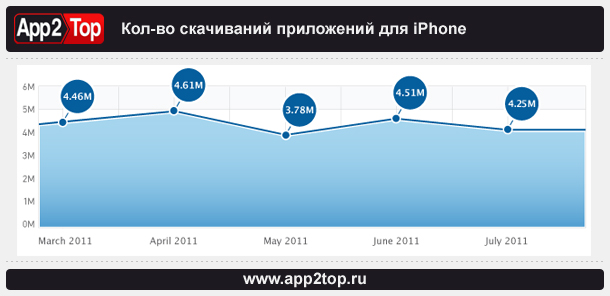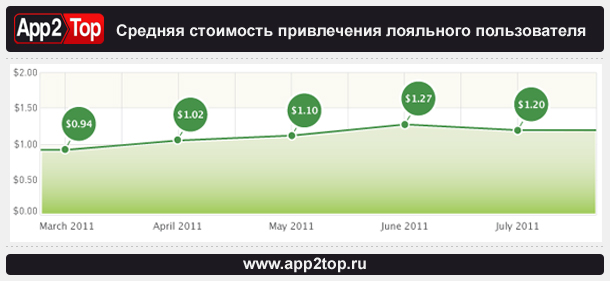Users download fewer apps on iPhone
According to the marketing company Fiksu, iPhone users have become less likely to install applications. This decline, in general, is not very significant, given the popularity of the iPhone, but the fact of moving backwards is interesting.
Fiksu notes that if in June the number of iPhone app installs per day was 4.505 million, then in July this figure dropped to 4.25 million.
Fiksu has also published the “App Store Competitiveness Index”, which shows the average number of downloads from the top 200 free iPhone apps in the United States per day. In the course of the study, 2.7 million actions with mobile applications were analyzed using the Fiksu user engagement platform. Operations such as launching applications, registering and in-app purchases were investigated.
Micah Adler, CEO of Fiksu, believes that “one of the reasons for this decline may be the lack of stimulating promotions that previously encouraged buyers to download apps and supported ratings. Now marketers in the field of mobile applications are trying to reallocate budgets and focus on non-stimulating advertising in order to ensure higher conversion to loyal customers with lower costs.
As you may remember, in April Apple abandoned stimulated downloads, and began to avoid applications that use the payment–for-download scheme (PPI – pay-per-installation) or are promoted using incentive exchanges (offer walls) from the iTunes App Store.
Fiksu also reports that the price of attracting a loyal buyer (according to the index of the value of a regular buyer) has also fallen. In July, after four months of increase, the price fell by 5.5% and amounted to $1.20.
Is it really a matter of rejecting stimulated downloads? Tapjoy, the leader of the app distribution and monetization market, declined to comment.
But Peter Farago from Flurry Analytics agreed with the main trends of downloads from April to mid-summer. But, nevertheless, he would not vouch for the specific figures of Fiksu. “With a decrease in the share of stimulated downloads, overall prices are rising,” he notes.

